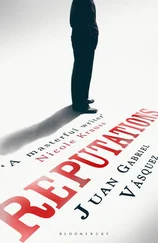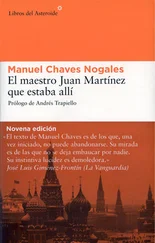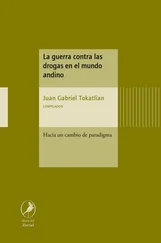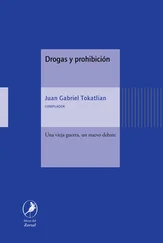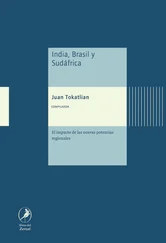“Sorry. Do you want a sip?”
“Not for me, thanks.”
“Very good,” she congratulated him. “One does not drink at the helm, everyone knows that.”
After passing under a concrete bridge — a fluorescent sign ordered FAITES LA PAUSE TOUTES LES DEUX HEURES — Oliveira slowed down. He changed into the right-hand lane; Agatha asked him if they were going to stop for something as he pulled into a rest area, a concrete bay surrounded by pines. “I just need to use the rest room,” he lied. The noise of a fight came out of a bus parked a few meters away. Two teenagers were rolling around on the ground, and the sound of a fist as it thumped into a skull seemed exotic to Oliveira, something forgotten, a childhood memory. “I won’t be long,” he said as he got out. This, however, was true: he crossed the parking bay toward the services hut, found a tin vending machine built into the wall, put in ten francs, and a little pack of condoms, square and perfect as if no one had ever touched it, dropped into the palm of his hand. The dispenser also offered toothbrushes and razors. Oliveira decided he wasn’t in need of anything else and returned to the van.
Agatha had finished the bottle. Her raincoat was hanging over the hand brake, between the two seats. When she spoke, it was clear her tongue was beginning to get tangled up.
“Do you like me, Oliveira?”
He didn’t answer.
“Are we going to make love? Because I’d rather not go to my house, that’s the only thing.”
“Well, let’s go somewhere else, then,” Oliveira heard himself say.
He waited a moment and added:
“That is unless you’re in any hurry, of course.”
“None at all,” said Agatha, lowering her head. “It’s winter and the fucking night never ends.”
III
The television was a luminous window hanging in the corner attached to the wall, and the slanted view Oliveira had from the bed was that of a man with thick glasses standing beside a map of France, indicating with a pointer the route of some electronic clouds across the western half of the hexagon. He was moving his lips but not saying anything, because underneath France, between Nice and Marseille, the word Mute ordered his silence. Then a series of squares appeared, Sunday, Monday, Tuesday, Wednesday, and Oliveira saw that he’d have nothing but bad weather for the whole trip, but thought he might reach Clermont-Ferrand ahead of the rain they were forecasting. Who was that man? Why was Martine Desailly not there, the woman who’d been in charge of predicting the weather for years? The one-o’clock news was part of Oliveira’s routine, and his day incomplete without the most recent scandal from the Assemblée Nationale or the images of the dead in Algiers, more or less sophisticated forms of violence that vindicated his desire to leave, to hide away from the world. Agatha was sleeping. After sex, she had locked herself in the bathroom for fifteen minutes; Oliveira was going to ask if she was feeling all right, but then saw that she hadn’t redone her makeup, as he’d thought at first, but that the dampness of her eyes was displacing her mascara a little. He thought it would be futile to ask her why she’d been crying, when they were going to say good-bye in an hour and never see each other again in their lives. He felt cynical but also justified in refusing to accumulate other people’s sadness when it wasn’t within his power to alleviate it. “I’m going to sleep for a little while, if you don’t mind,” Agatha had said, “but don’t be embarrassed about waking me up if we have to get going.”
“Don’t worry, have a good sleep,” said Oliveira. “Shall I turn off the light?”
“No. Leave it on.”
“I don’t mind turning it off. So you can sleep better.”
“It’s fine as it is, Franciscosson. Leave it on.”
Oliveira saw her move one hand over her forehead and chest in a quick blessing degenerated from use, like a businessman’s signature. Agatha, with her eyes already closed, kissed the Christ on her necklace and rolled over.
Now, Oliveira watched her sleep. He did not envy her turbulent sleep; the woman’s body frequently shook as if she were falling through the air in her dreams. Her constant little kicks had uncovered her: her hips had the marks of someone who had lost weight quickly — perhaps after pregnancy, Oliveira already knew that her daughter was dead but didn’t want to know more — and on her thighs the dimpling of cellulite gave her skin the look of fine cork. The hair on her body glistened with the changeable halo of the television like synthetic thread, like the nylon line on a fishing rod. Oliveira went around the other side of the bed, knelt down on the carpet, his gaze at the level of her barely visible vulva. This woman had been beautiful, that was obvious; Oliveira had been aroused by her innocence in bed, her apparent docility, her reluctance when he suggested she turn over.
Then she seemed to sense Oliveira’s gaze.
“What’s up? Do we have to get going?”
He hadn’t thought of that, but he looked at his watch. He still had to take Agatha home and find a rest area, perhaps on the other side of Paris, to get a little sleep before dawn, so he wouldn’t be nodding off on the drive south. Ever since he’d decided to leave he’d found himself in moments like this, when it seemed like his arrival was something illusory, something that would never happen.
“Yes, it’s time,” said Oliveira. “Shall I hand you your clothes?”
The woman sat up in bed. Her breasts dropped slightly, not scrawny but full like bags, like the bag of serum Oliveira had held that afternoon.
“Well, then,” Agatha grumbled like a girl getting up for school. “If we have to go, we have to go. Of course, I haven’t got a vote on this.”
Outside, an icy wind bit their ears and dried their lips. As soon as they stepped into the garage, a motion detector switched on a bright light. Her shadow gathered in on itself, a shapeless, inhuman silhouette.
“So,” said Oliveira. “Tell me how to get to your house.”
“My house,” Agatha repeated in irritation. “You know what? If it were up to me, I’d stay here until morning.”
“Well, stay. What’s the problem?”
“The problem is that France is not covered in railway lines, monsieur. Or perhaps you’ve seen a train going by here? And with the price of a taxi I could pay for five nights in a hotel like this.”
“Exactly,” said Oliveira. “That’s why I’m going to drive you, that’s why I need to know how to get there.”
Agatha didn’t say anything.
“How do you get there?” Oliveira insisted impatiently.
“Yeah, yeah, don’t badger me,” said Agatha. “Just follow the signs for Paris, that’s all. You’ll see L’Isle-Adam soon enough, it’s pretty straightforward.”
This time, however, there was no traffic. Every once in a while, a pair of red lights would whistle past in the left-hand lane and disappear as quickly as they’d appeared; occasionally the van would overtake a transport truck, the bodywork jostling and the steering wheel trembling in Oliveira’s hands as he pulled out of the slipstream. Agatha was silent, as if Oliveira had offended her by saying they had to leave the hotel. To make up for the mistake he couldn’t quite identify, out of cordiality to a woman he’d slept with or simple pity, pity for the sadness Agatha seemed to carry with her like a snail’s shell, Oliveira tried to start up a spontaneous conversation. What would his name be in Iceland? What had she said he’d be called?
“Franciscosson. The son of Francisco. Francisco, your father, the great Portuguese rider of this century.”
“And you?”
“Me what?”
“What would your surname be?”
Читать дальше

